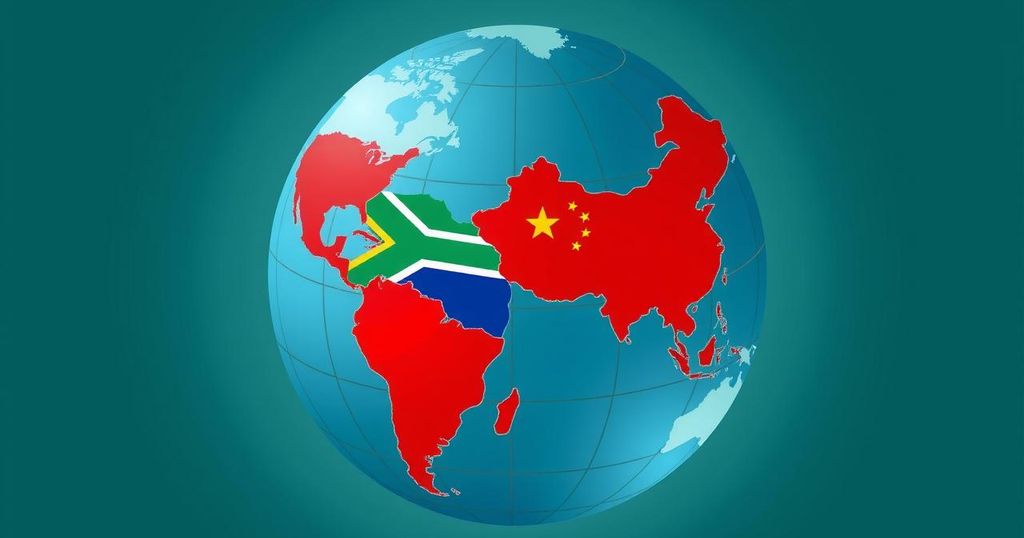South Africa Downgrades Ties to Taiwan in Favor of Closer Relations with China
South Africa has reduced diplomatic ties with Taiwan, reclassifying its representative office to appease China amid tensions with the U.S. The shift involves relocating Taiwan’s office and reflects South Africa’s increasing alignment with Chinese interests. This change follows decades of diminishing recognition for Taiwan among African nations, highlighting a shift in geopolitical dynamics.
South Africa has recently downgraded its diplomatic ties with Taiwan, aligning more closely with China. Following a diplomatic disagreement with the United States, Taiwan’s representative office was reclassified on South Africa’s government website from “Taipei Liaison Office” to “Taipei Commercial Office.” This modification positions the office under the category of “international organisations represented in South Africa,” which signals a shift in diplomatic recognition aimed at appeasing Chinese interests.
In a move to further diminish the status of its relationship with Taiwan, South Africa has mandated the relocation of Taiwan’s office from Pretoria to Johannesburg by the end of March. This development signals a trend towards the adherence to China’s “One-China policy,” despite Taiwan’s protests regarding the perceived suppression of its sovereignty by Beijing. Taiwan asserts that these demands are unjustifiable and demonstrate increased Chinese pressure on international relations.
Historically, South Africa severed formal diplomatic relations with Taiwan in 1997, but allowed for a liaison office in Pretoria—a privilege that is now under scrutiny. The situation is compounded by Taiwan’s dwindling diplomatic recognition globally, with only 12 states maintaining formal ties and limited presence in Africa, where it is primarily allied with Eswatini. Several African nations have abandoned diplomatic relations with Taiwan in favor of ties with China over the past decades.
Recently, Taiwan’s foreign minister Lin Chia-long indicated that, in response to South Africa’s actions, the government may contemplate shutting down South Africa’s liaison office in Taiwan, which could hinder travel, trade, and educational collaborations between the two nations. Such responses highlight Taiwan’s concerns regarding the implications of diminishing diplomatic status, particularly as China and South Africa strengthen their economic partnership, with both nations being members of the Brics coalition.
Chinese officials have welcomed South Africa’s decision to downsize Taiwan’s diplomatic mission, stating that Taiwan independence is ultimately untenable. As South Africa continues to prioritize its relationship with China, reassurances have been made from Beijing regarding stable and cooperative relations, especially amid heightened tensions with the United States. The changes come in the wake of historical tensions, including the Trump administration’s expulsion of South Africa’s ambassador due to alleged racist remarks and the imposition of restrictions based on domestic policies seen as divisive.
The recent diplomatic changes by South Africa reflect its strategic pivot towards strengthening relations with China while sidelining Taiwan. By downgrading Taiwan’s diplomatic presence and adhering to Chinese policy, South Africa underscores a significant geopolitical shift. As Taiwan protests against these actions, the implications for future diplomatic interactions in the region remain uncertain, particularly amid ongoing pressures from larger global players like the United States and China.
Original Source: www.independent.co.uk




Post Comment